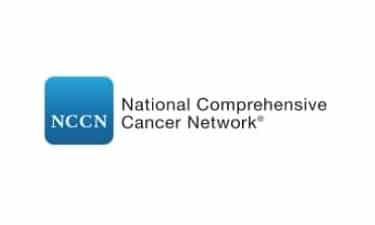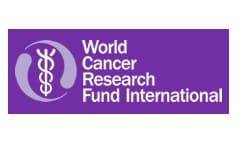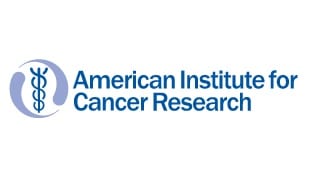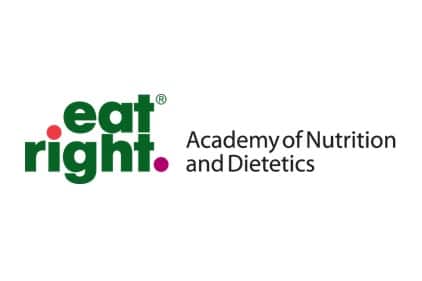Expert recommendations
The diets recommended by integrativein cancer care, a patient-centered approach combining the best of conventional care, self care, and evidence-informed complementary care in an integrated plan oncology experts for general anticancer effects all emphasize eating more plant-based foods. This is not the same as a vegetarian diet, but it places vegetables at the center of your meal, with whole grains, fruits, and animal products in supporting roles. A whole-foods, plant-based diet may help build your resilience, improve your physical function and even inhibit cancer growth and spread.
Both medical groups and integrative experts provide recommendations for Eating Well. Learn more about the approaches and meanings of recommendations in Integrative Oncology Programs and Expert Guidelines ›
Recommendations from medical groups
General guidelines across expert groups
Leading oncology medical groups are clear on the role that diet plays in cancer prevention and survival, providing guidelines to follow a healthy eating pattern at all ages. Guidelines from these groups are recommended both to prevent cancer and after a cancer diagnosis:
A healthy eating pattern includes:1American Cancer Society. ACS Guidelines on Nutrition and Physical Activity for Cancer Prevention. June 9, 2020. Viewed April 22, 2021; American Institute for Cancer Research. Cancer Prevention Recommendations. From World Cancer Research Fund/American Institute for Cancer Research. Diet, Nutrition, Physical Activity and Cancer: A global Perspective.Continuous Update Project Expert Report 2018. Viewed January 20, 2022; Denlinger CS, Sanft T et al. NCCN Clinical Practice Guidelines in Oncology (NCCN Guidelines®). Survivorship. Version 1.2021 — February 24, 2021; NCCN Guidelines for Patients®: Survivorship Care for Cancer-Related Late and Long-Term Effects, 2020. National Comprehensive Cancer Network. Viewed June 3, 2021; NCCN Guidelines for Patients®: Survivorship Care for Healthy Living, 2020. National Comprehensive Cancer Network. Viewed June 3, 2021.
- Foods that are high in nutrients in amounts that help you get to and stay at a healthy body weight
- A variety of vegetables—dark green, red, and orange, fiber-rich legumes (beans and peas), and others
- Fruits, especially whole fruits in a variety of colors
- Whole grains—brown rice, quinoa, oats
A healthy eating pattern limits or does not include:
- Red and processed meats
- Sugar-sweetened beverages
- Highly processed foods and refined grain products
It is best not to drink alcohol.
Most recommendations also advise that taking nutritional supplements will not make up for an unhealthy diet.
Guidelines for specific nutritional needs
2013 clinical practice guidelines make these statements regarding people with lung cancer:
- People undergoing treatment of lung cancer who have experienced weight loss may add high-calorie and protein supplements (1.5 kcal/mL) to stabilize their weight.
- Lung cancer guidelines suggest using supplemental omega-3 fatty acids to improve the nutritional status of people with lung cancer who have lost muscle mass (sarcopenia).
The 2009 guidelines state that people, and especially elders, at risk of inadequate nutrition should get professional guidance on nutritional supplementation to promote optimum nutritional status, manage symptoms from either the cancer or from treatments, meet increased nutritional needs, and correct any deficits in nutrition during treatment.
Guidelines related to symptoms and side effects
Inconclusive evidence to make recommendations for or against nutritional interventions to improve anxiety or depression symptoms in people with cancer regardless of when in the course of care
Integrative programs, protocols, and approaches
These program from integrative medicine expert recommend making Eating Well an anticancer lifestyle practice.
Lise Alschuler, ND, FABNO, and Karolyn Gazella
Alschuler LN, Gazella KA. The Definitive Guide to Cancer, 3rd Edition: An Integrative Approach to Prevention, Treatment, and Healing. Berkeley, California: Celestial Arts. 2010
Alschuler LN, Gazella KA. The Definitive Guide to Thriving after Cancer: A Five-Step Integrative Plan to Reduce the Risk of Recurrence and Build Lifelong Health. Berkeley, California: Ten Speed Press. 2013.
Approaches are described for certain cancer types, or along with certain conventional therapy treatments, or for particular conditions such as insulin resistance.
Keith Block, MD
Block KI. Life over Cancer: The Block Center Program for Integrative Cancer Care. New York: Bantam Dell. 2009.
The integrative Block Program has recommendations to people who are at different places along the cancer continuum:
- Those who’ve been recently diagnosed
- Those in treatment
- Those who’ve concluded treatment and need to remain vigilant to prevent recurrence
Lorenzo Cohen, PhD, and Alison Jefferies, MEd
Cohen L, Jefferies A. Anticancer Living: Transform Your Life and Health with the Mix of Six. New York: Viking. 2018.
This book introduces the concept of the Mix of Six, which is identical to six of our 7 Lifestyle Practices ›
Dr. Cohen and Ms. Jefferies explain that while each plays an independent role, the synergy created by all six factors can radically transform health, delay or prevent many cancers, support conventional treatments, and significantly improve quality of life.
Jeremy Geffen, MD
Geffen J. The Seven Levels of Healing. Audio CD – 2002
Geffen J. The Journey Through Cancer: An Oncologist’s Seven-Level Program for Healing and Transforming the Whole Person. New York, New York: Three Rivers Press. 2006.
Dr. Geffen developed a healing program based on what he calls The Seven Levels of Healing. It is a program of body, mind, heart, and spirit for healing and transforming the whole person.
Dr. Geffen presented at Cancer as a Turning Point Conference in Seattle, Washington, in 2006.
Play videoGerald Lemole, MD; Pallav Mehta, MD; and Dwight McKee, MD
Lemole G, Mehta P, McKee D. After Cancer Care: The Definitive Self-Care Guide to Getting and Staying Well for Patients with Cancer. New York, New York: Rodale, Inc. 2015.
These doctors present easy-to-incorporate lifestyle changes to help you “turn on” hundreds of genes that fight cancer, and “turn off” the ones that encourage cancer, while recommending lifestyle approaches to address each type.
Barbara MacDonald, ND, LAc
MacDonald B. The Breast Cancer Companion—A Complementary Care Manual: Third Edition. Self-published. 2016.
Naturopathic physician Barbara MacDonald provides information about breast cancer, its conventional treatment, and natural approaches to enhancing treatment, managing side effects, reducing risk of recurrence, and healthy living after cancer treatment is completed.
Ornish Diet and Lifestyle Modification Program (for prostate cancer)
Cardiologist Dean Ornish, MD, has adapted his Ornish Heart Disease Reversal Program for use by men with prostate cancer. The program includes nutrition, fitness, stress management, and love and support.
Gurdev Parmar, ND, FABNO, and Tina Kaczor, ND, FABNO
Parmar G, Kaczor T. Textbook of Naturopathic Oncology: A Desktop Guide of Integrative Cancer Care. 1st edition. Medicatrix Holdings Ltd. 2020.
This book provides information on the treatment of 24 cancers, plus the most effective treatments of the most common symptoms affecting cancer patients while they undergo chemotherapy, radiotherapy, or surgery.
David Servan-Schreiber, MD, PhD
Servan-Schreiber D. Anticancer: A New Way of Life. New York: Penguin Books. 2009.
This book provides tips on how people living with cancer can fight it and how healthy people can prevent it.
Traditional medicine systems
Traditional Chinese and Ayurvedic medical systems see each individual as composed of the primary elements of nature, in varying degrees. After carefully determining your basic composition and your current state of balance (or imbalance), a traditional medicine professional may prescribe foods and herbs to bring your elemental energies into alignment.
See Finding Integrative Oncologists and Other Professionals ›
Other expert assessments
Current Oncology Reports
An expert review of evidence suggests that nutrition might have a potential role in alleviating cancer-related fatigue.2David A, Hausner D, Frenkel M. Cancer-related fatigue-is there a role for complementary and integrative medicine? Current Oncology Reports. 2021 Nov 7;23(12):145.
- Maintain an optimal nutritional status to avoid deficiencies
- Base meals on a variety of vegetables, fruits, whole grains, and legumes
- Consume foods rich in omega-3 fatty acids
- Reduce consumption of animal-based products
- Avoid sugary drinks
- Limit consumption of processed foods
Survey of naturopathic oncologists
A 2018 survey identified a low glycemic index diet as one of the most frequently identified interventions used by members of the Oncology Association of Naturopathic Physicians.3Seely D, Ennis JK, McDonell E, Zhao L. Naturopathic oncology care for thoracic cancers: a practice survey. Integrative Cancer Therapies. 2018 Sep;17(3):793-805.
Commentary
Dysbiosis and chronic systemic inflammation may contribute to the development of neuropathies associated with prediabetes, diabetes, and metabolic syndrome. An anti-inflammatory elimination diet―foods to support an anti-inflammatory, neuroprotective milieu, utilizing whole foods with a high phytonutrient density, low glycemic load, protective antioxidants, and high-quality dietary fats along―and void of common inflammatory foods (gluten, diary, sugar, corn, and soy) is used by some to manage neuropathy not related to cancer.4Rowin J. Integrative neuromuscular medicine: neuropathy and neuropathic pain: consider the alternatives. Muscle & Nerve. 2019 Aug;60(2):124-136.
Helpful links
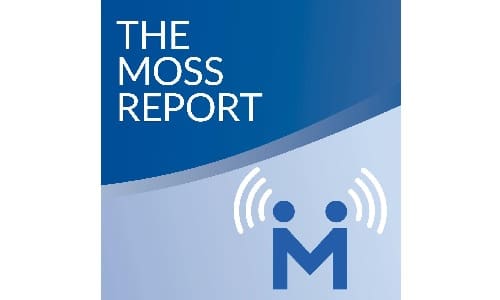
Keep reading
Eating Well
More Healing Practices
Learn more
References

